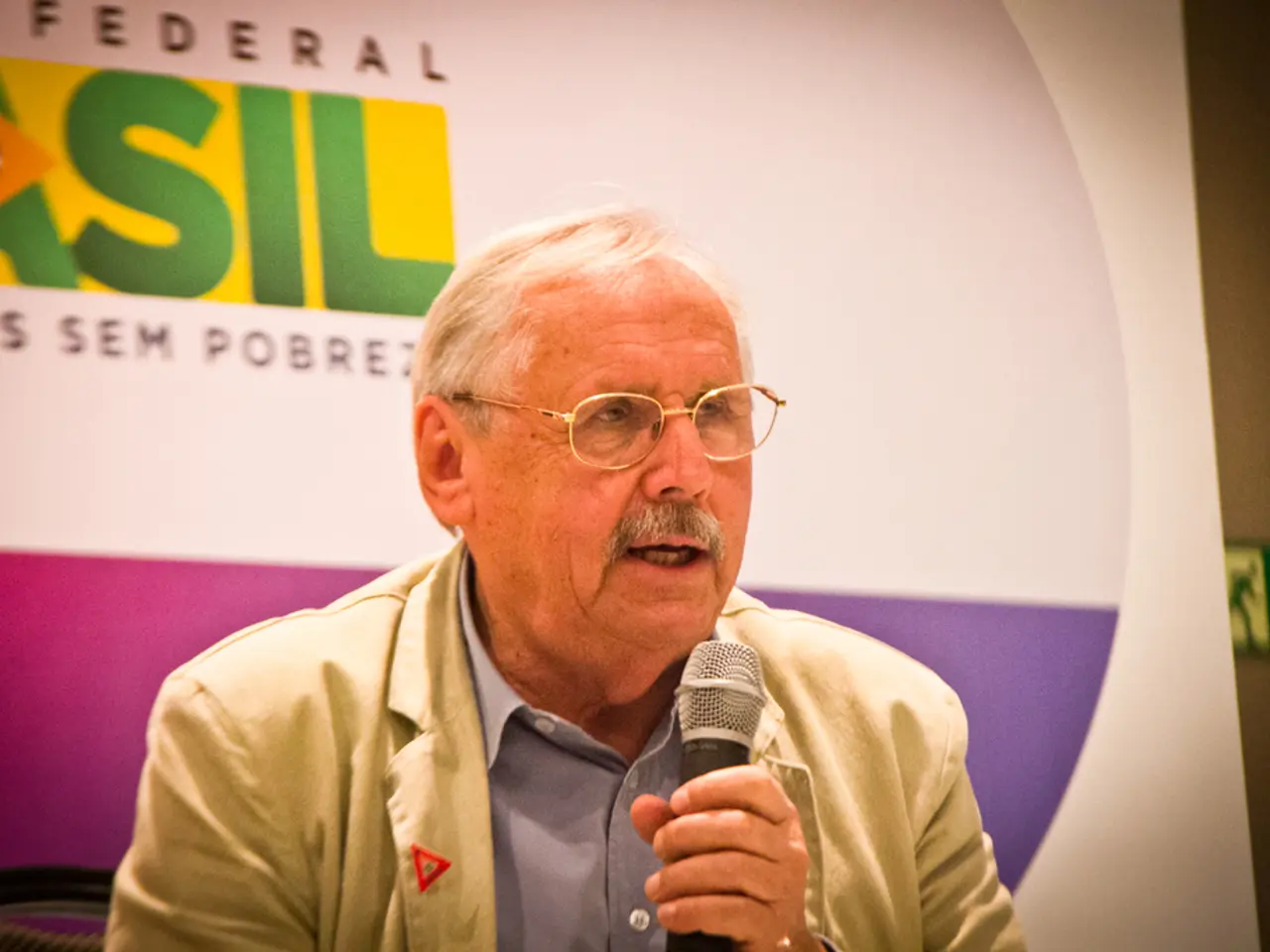Federal control by Trump over Washington D.C. intensifies, as local authorities continue to show respect towards him
President Donald Trump is set to ramp up efforts to curb crime in Washington, D.C. on Monday, planning a press conference at 10 a.m. ET to claim it will stop violent crime in the city. However, this move could lead to significant legal and political conflicts, risking undermining the city’s local autonomy, disrupting police command structures, and provoking lawsuits.
D.C., with limited self-governance under the 1973 Home Rule Act, allows its residents to elect local leaders and law enforcement. Trump’s move to federalize the city’s police and override its government would require Congressional approval, which has not been granted. The city has already sued to block the federal takeover, arguing it is illegal and threatens operational chaos and the autonomy of 700,000 residents.
The intervention disrupts the established chain of command, with the Trump administration appointing a federal official to head the D.C. Metropolitan Police Department. This move has been criticized by the local police chief as a "dangerous" threat to law and order. The potential disruption to operations could "wreak operational havoc," according to city officials.
Broader political and civil rights concerns also arise. Because D.C. is federally controlled rather than a typical city governed by state law, this federal intervention sets a precedent that civil rights groups warn could be used to assert federal dominance over other jurisdictions in the future, posing risks to democratic local governance nationwide.
The Trump administration aims to crack down on violent crime with federal resources, backing law enforcement with federal prosecutors, the FBI, and stiffer penalties, while criticizing local bail policies and judicial releases. This includes appointing new judges to impose harsher sentences and increasing federal agency presence in D.C.
Mayor Muriel Bowser has been deferential to Trump amid his threats, avoiding direct criticism. However, she removed Black Lives Matter Plaza in March due to threats of funding cuts from Republicans in Congress. Twelve of thirteen members of the DC Council did not respond or declined to comment on the situation.
Up to 450 federal law enforcement officers participated in a surge over the weekend, and as many as 130 FBI agents are expected to patrol with DC police as part of the increased federal presence. Federal agencies work with DC's police force on a consistent basis due to jurisdictional overlaps with US Park Police, Federal Protective Service, Secret Service, Capitol Police, and others.
Despite Trump's claims about rising crime in DC, overall crime numbers are lower than last year's, according to DC's Metropolitan Police Department. US Attorney for DC Jeanine Pirro has given Bowser credit for working with federal officials. Bowser and Trump have also worked together on occasions, such as announcing the NFL Draft coming to DC in 2027 and welcoming federal help in repairing and beautifying federal parks.
Trump can take control of the DC police department for 48 hours if he determines special emergency conditions exist, and can retain control for a longer period with congressional notification. However, any request for control over 30 days requires passage into law.
This potential federal intervention in Washington D.C. could lead to major governance conflicts between federal and local authorities, legal battles over constitutional and statutory limits, disruptions to public safety operations, and concerns about authoritarian overreach affecting civil rights and home rule in the nation’s capital.
[1] Washington Post, "D.C. sues to block Trump's plan to take control of the city's police," 2020. [2] NBC News, "Trump administration appoints federal official to head D.C. police," 2020. [3] The Hill, "Trump administration plans to crack down on D.C. crime," 2020. [4] ACLU, "Trump's federal takeover of D.C. threatens local autonomy and civil rights," 2020. [5] CNN, "Trump considers deploying National Guard in Washington, D.C.," 2020.
- The Trump administration's plan to federalize the D.C. police department and override its government is facing legal conflicts as the city has already sued, claiming the move is illegal and has the potential to cause operational chaos for its residents.
- The potential disruption to the D.C. Metropolitan Police Department's operations due to the appointment of a federal official and increased federal presence could lead to major governance conflicts and concerns about authoritarian overreach, threatening civil rights and home rule in the nation’s capital.
- The federal intervention in Washington D.C., if enacted, could set a dangerous precedent for asserts federal dominance over other jurisdictions, posing risks to democratic local governance nationwide, as civil rights groups have warned.






